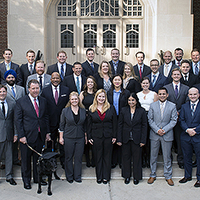 Facebook's recent privacy breach offers numerous lessons to companies, says Karthik Kannan, the Thomas Howatt Chaired Professor in Management at Purdue University, an expert in big data who studies systems that exploit instincts and biases to nudge human behavior. (Stock Image)
Facebook's recent privacy breach offers numerous lessons to companies, says Karthik Kannan, the Thomas Howatt Chaired Professor in Management at Purdue University, an expert in big data who studies systems that exploit instincts and biases to nudge human behavior. (Stock Image)
Minding Data
How companies can learn from the #DeleteFacebook movement
The scandal involving Facebook and Cambridge Analytica is the most recent in a troubling trend of information security mishaps in which data belonging to millions of users is hacked, leaked or leveraged irresponsibly.
But the nationwide movement to delete Facebook is gaining more traction than previous public protests calling for privacy and transparency, says Krannert faculty member Karthik Kannan, an expert in big data who studies systems that exploit instincts and biases to nudge human behavior.
“Some companies are removing the option to login through Facebook in response to the latest events,” says Kannan, the Thomas Howatt Chaired Professor in Management at Purdue University. “Other companies, like Tesla, have completely removed their Facebook presence. Those decisions may depend on how they use social media.”
In March 2017, news reports exposed how Cambridge Analytica, a political consulting firm, accessed the private information of millions of Facebook users without their permission and used the data for targeted campaign advertisements on social media, while undercover videos revealed how the agency used tactics such as bribery and entrapment to implicate political opponents in elections worldwide. Up to 87 million Facebook users, most of them in the United States, may have been affected.
Kannan says the ensuing backlash should serve as a reminder that companies unable to safeguard private information will face consequences, such as the growing movement among businesses and individuals to delete Facebook.
“While these implications may seem trivial at first glance, there is an increased awareness around privacy issues,” he says. “We may be seeing significant shifts in companies in terms of how they manage user profile data, but it remains unclear to what extent other firms will use these profiling data for behavioral nudges.”
Although Cambridge Analytica’s efforts are similar to those employed in previous campaigns to build profiles of potential voters and capitalize on their hopes and fears for political gains, Kannan says the firm crossed a line by utilizing unethical and even illegal means to sway elections.
“In many cases involving marketing, we appeal to emotions, so it is not surprising this has happened in politics,” he says. “The image of Cambridge Analytica has been damaged not only because the firm was nudging behavior, but because its executives appeared to be involved in scandals, according to secretly taped interviews. That’s where the problem begins.”
Kannan has researched the market impacts of security breach announcements, such as one by Equifax, a credit-reporting agency, in 2013. Although the cases of Equifax and Facebook differ in circumstances, they were both characterized by private data unknowingly falling into the wrong hands. “In both cases, consumers were surprised at what data was collected and how it might be used for targeting,” he says.
Such revelations could ultimately spur a democratization of data, allowing users, rather than companies, to decide how their information is collected and shared. “There is increasingly a need for us to design a mechanism to allow consumers control over their data,” Kannan says.





